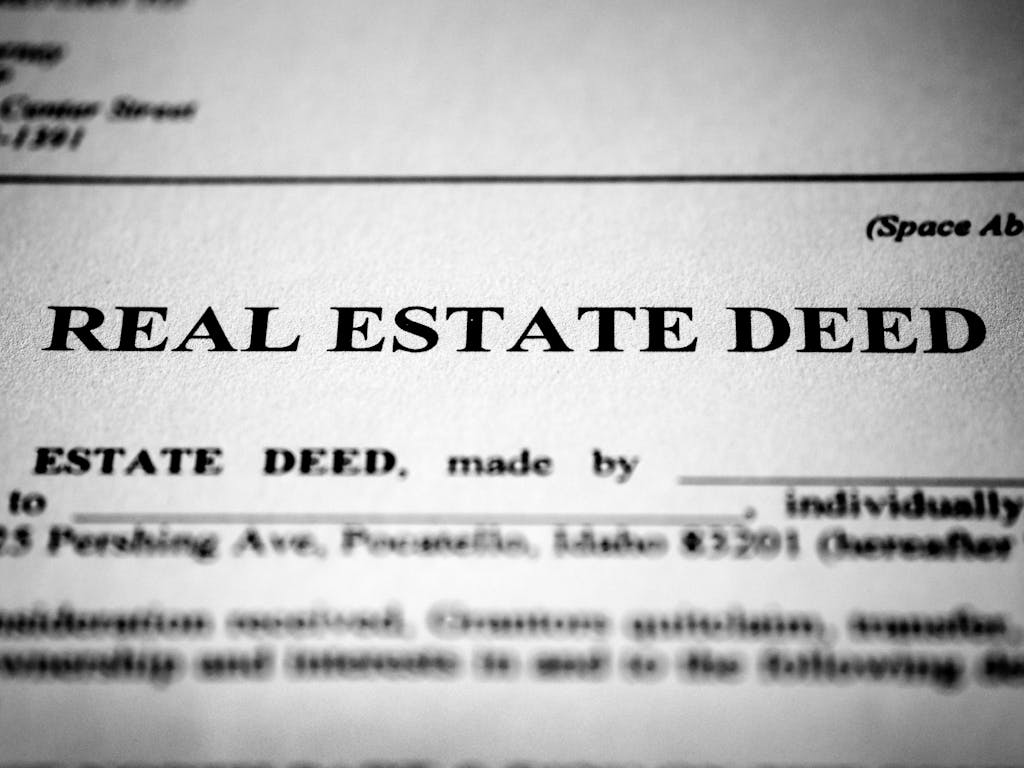
How a Dallas Property Division Attorney Can Protect Your Assets
Divorce is never simple. It brings emotional and financial challenges that can be overwhelming for anyone going through it. One of the most stress-inducing aspects of divorce is property division. However, with a knowledgeable Dallas Property Division Attorney by your side, you’re not navigating this complex terrain alone. At the Law Office of Chris Schmiedeke, PC., our attorneys provide guidance tailored to your unique situation, ensuring that your rights and interests are upheld throughout the process. Here’s how we assist you in achieving a fair outcome.

Understanding Property Division in Texas Divorces
In Texas, property division is governed by the community property law. This means that all assets acquired during the marriage are presumed to be owned equally by both spouses. However, this doesn’t imply a 50/50 split in every scenario. The court has the authority to decide on an equitable distribution of these assets. Understanding the complexities of community property law is crucial for securing a fair division of assets. Our attorneys are adept at navigating these complexities, ensuring that you receive what you’re rightfully entitled to.
EXCELLENTTrustindex verifies that the original source of the review is Google. They are very helpful they helped me out with my questionsTrustindex verifies that the original source of the review is Google. Empathetic and compassionate assistance with my situation. Very Professional and efficient consultation. All my gratitude and respect. 🫶🏼Trustindex verifies that the original source of the review is Google. I had a case where it was supposed to be a non-contested divorce and we ended up switching to contested. I'm glad I chose the right people for the job. Amanda helped me out a bunch and made sure everything was done correctly and quickly. I would highly recommend them if you are having any legal issues they are very responsive and answer every question you have. Thanks Amanda!Trustindex verifies that the original source of the review is Google. We are incredibly grateful to this law office for helping us with the adoption of our son. From start to finish, the entire process felt smooth and easy thanks to their professionalism and dedication. They worked quickly and efficiently, making what could have been a stressful experience feel manageable and even pleasant. A special thank you to Amanda—she was absolutely amazing! We were in constant contact with her, and she guided us through all the paperwork and details with patience and care. Her support meant the world to us. We truly appreciate all the hard work and would highly recommend this team to anyone going through the adoption process.Trustindex verifies that the original source of the review is Google. This law firm helped me through a very complicated divorce. Meagan and Glen were professional and caring. I highly recommend this practice to anyone needing a divorce. I felt empowered through the divorce process. Glen always approached every issue with integrity and is incredibly supportive and thorough. Basically, they are the opposite of every stereotype you hear about divorce lawyers. Thank you for everything you do.Trustindex verifies that the original source of the review is Google. Amanda was incredibly professional, knowledgeable, and prompt. I appreciate that she was there to explain details and answer my questions every step of this difficult process. I highly recommend reaching out to this office if y'all are going through it!Trustindex verifies that the original source of the review is Google. Wonderful people. Very helpful. Kyra is awesome. Meagan is great also. If your in need this is your team.Trustindex verifies that the original source of the review is Google. This office is amazing. I spoke with Robert, who was so helpful, and he answered all my questions in depth and helped me understand my summer visitation. I highly recommend this office if you need to hire a family lawyer
What is Considered Property in Dallas, Texas?
When considering property in a divorce, it’s important to recognize that it extends beyond tangible items like real estate. Property encompasses separate, mixed, and community assets. This includes everything from bank accounts and vehicles to household furniture and retirement plans. Our team helps you categorize each asset accurately, which is essential for a fair division. We guide you through the process, breaking down what each category entails and how it affects your case.
Differentiating Separate, Mixed, and Community Property
- Separate Propertyincludes assets that one spouse owned before the marriage or received as a gift or inheritance. These are typically not subject to division.
- Mixed Property refers to assets that may have started as separate but have become mixed with marital assets over time, making their classification more complex.
- Community Propertyconsists of assets acquired during the marriage, subject to division upon divorce.
In a divorce, equitable distribution covers any asset owned by a spouse. If a couple owns property together, it’s considered community or marital property. If a spouse owned something before marriage, it’s separate property. According to the Texas Family Code, property is presumed to be community property. If a spouse claims it’s separate property, they must prove it with clear and convincing evidence.
The Impact of Inheritance on Property Division
Inheritance often falls under separate property, but complications arise when these assets mix with marital property. For instance, if inherited funds are deposited into a joint account, they may lose their separate property status. This can significantly impact the division process. Understanding how to trace and prove the separate nature of these assets is key. Our attorneys are skilled in managing such scenarios, ensuring that your inherited assets are protected in the division process.
How the Court Calculates Equitable Distribution
“Equitable” distribution doesn’t necessarily mean “equal.” The court strives to reach a fair division by considering several factors. These can influence the ultimate division of property, ensuring that each spouse’s circumstances are taken into account.
Factors Considered in Property Division
Courts consider various elements when determining equitable distribution, including:
- Tax Implications: The potential tax burdens each spouse might face as a result of the division.
- Child Custody: The spouse with primary custody may require more resources to support the child.
- Income Discrepancies: Differences in earning capacity and job prospects between spouses.
- Health Needs: Any existing medical conditions that may affect financial stability.
- Marital Conduct: Instances of infidelity or financial misconduct can impact the division.
- Earning Potential: Future employability and career prospects of each spouse.
Our attorneys ensure that these factors are thoughtfully presented and considered in your case, so the division reflects your needs and contributions.
Handling Debt Division in Dallas, Texas
Just like assets, debts acquired during the marriage are also part of property division in Texas. While these debts are typically shared, they are not always divided equally. Determining what is fair requires a deep understanding of marital finances. Our legal team assists you in identifying and valuing debts, advocating for an equitable distribution that considers your financial situation and future stability.
Strategies for Dividing Property Independently
While courts can intervene in property division, many couples opt to handle it independently. This approach can be less contentious and more efficient. Here’s how to go about it:
Inventory Assets: Create a comprehensive list of all assets owned together.
Assign Value: Determine the worth of each item, ensuring an accurate assessment.
Decide Ownership: Agree on who will retain which assets.
Seek Approval: Present your agreement to a judge for official approval.
Our attorneys can guide you through this process, ensuring your agreement aligns with legal standards.
When to Seek Legal Assistance for Property Division
If disputes arise or complex assets are involved, legal guidance becomes essential. A Dallas Divorce and Family Law Attorney can facilitate negotiations and ensure that the division is equitable and legally sound. We provide personalized strategies that cater to your unique circumstances, helping to resolve conflicts efficiently and effectively.
Frequently Asked Questions about Texas Property Division
To prove that a disproportionate division is necessary, you must present evidence of financial disparity. This could include one spouse’s business ownership, significant income differences, or a homemaker role that impeded career development.
If a spouse hides assets, it can invalidate a divorce decree. Courts often favor the deceived spouse in these situations, rectifying the division to account for the undisclosed assets.
When property is involved in bankruptcy, it becomes untouchable until the bankruptcy proceedings are resolved. However, issues like custody and support can still proceed.
Why Choose the Law Offices of Chris Schmiedeke, P.C.
At the Law Offices of Chris Schmiedeke, P.C., we are committed to supporting our clients through the challenging process of property division. We offer personalized legal strategies that focus on your unique situation, ensuring that your interests are protected and your goals are met. Our experienced attorneys work diligently to achieve the best possible results for you.
Get Personalized Guidance for Your Property Division Needs
Navigating property division doesn’t have to be overwhelming. With the right guidance, you can move forward confidently. If you have questions about your situation, reach out to our team for a personalized consultation. At the Law Office of Chris Schmiedeke, P.C., our focus is on providing the support and expertise you need, allowing you to navigate the complexities of property division with confidence. Call us at 214-643-8904 or fill out our online form for further assistance.

